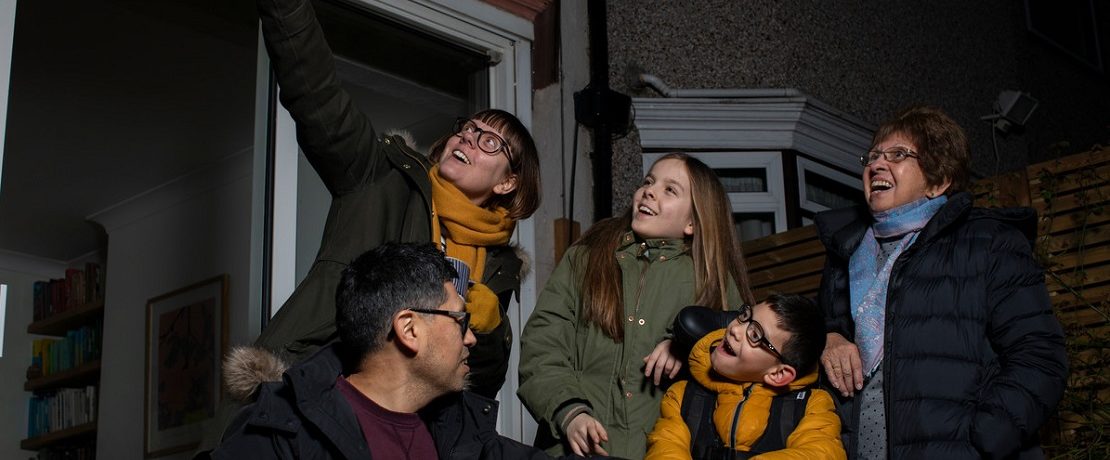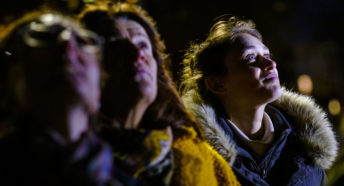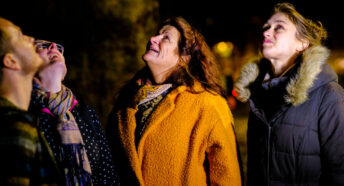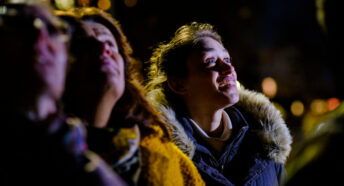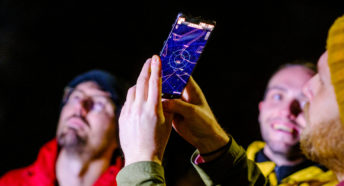Night skies outlook is bright, our Star Count results suggest
Want to enjoy our beautiful night sky? Your chances of seeing it are improving as CPRE’s 2022 Star Count found that star gazers are enjoying their best views of the night sky since our annual Star Count began in 2011.
The results, from the thousands of counts sent to us, suggest severe light pollution is continuing to fall since its 2020 peak.
We suspect that working from home – and, sadly, current concerns over soaring energy bills appear to have produced a ‘lockdown legacy’ – resulting in a clearer view of the stars.
The good news is that we can all help continue that legacy by turning off garden lights when not in use, and encouraging local councils and businesses to dim street lights and reduce office lighting left on overnight. Not only does that reduce carbon emissions and cut energy bills but it improves the natural environment for wildlife and us humans.
About Star Count
More than 2,500 of you took part in our annual Star Count, the country’s biggest citizen science project of its kind, between 26 February and 6 March this year. We asked you to report the number of stars you could see in the Orion constellation – the one with the three stars in a line.
What we found
The results suggest the great news that severe light pollution, defined as being able to see 10 or fewer stars with the naked eye, has continued to fall. After peaking in 2020, when 61% of participants reported seeing 10 stars or fewer, severe light pollution fell to 51% in 2021 and continued its slide this year, to 49%.
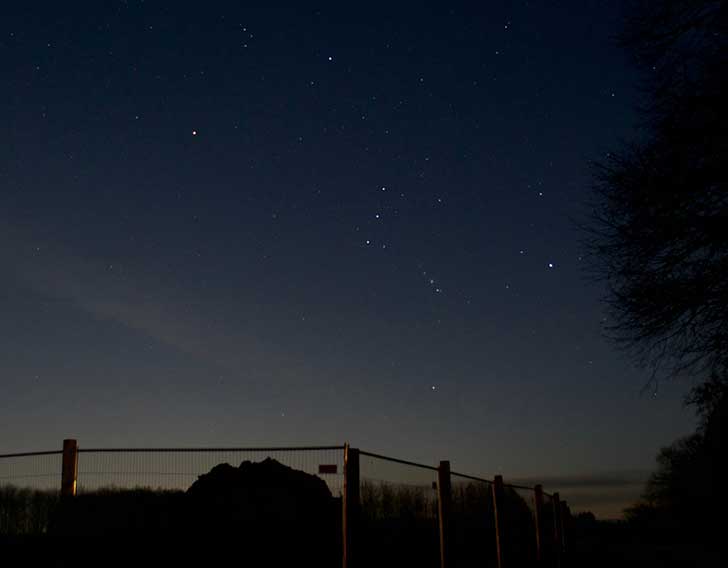
This significant reduction in people experiencing severe light pollution levels, first recorded during lockdown last year, has continued into this year. Despite lockdown being well behind us, there does not appear to have been a corresponding increase in light levels from outdoor and street lighting.
Explore our Star Count map
(Click on the arrow to the right of the legend to see the map and zoom in. You can also see the detailed results in our press release.)
Emma Marrington, CPRE’s dark skies campaigner, commented: ‘Half of the people who took part in Star Count experienced severe light pollution that obscures their view of the night sky. This is bad for wildlife and human health – and the energy being needlessly wasted is bad financially and bad for our planet.
But the good news is that these results show small adaptations can make a big difference. If there is a silver lining from the legacy of lockdown and, now, the soaring cost of energy, it is that it has never been clearer how simple it is to cut carbon emissions and energy bills while improving our natural environment.’
The ‘lockdown legacy’ of working from home and rising energy prices has created an opportunity to permanently improve our view of the night sky. Office-based organisations switching to permanent home working, coupled with employers’ desire to reduce electricity bills, appear to have led to fewer lights being left on overnight. This, alongside households being more conscious about wasting energy and councils reducing street lighting and switching to better lighting design, are believed to be behind the continued reduction in light pollution.
Why we love a starry, starry sky
A clear view of a star-filled night sky has a hugely beneficial effect on our mental health and, like access to other forms of nature, helps reduce stress and increase a sense of peace and wellbeing. Research has even shown that regularly spending time looking at the stars can lower blood pressure and reduce depression. Yet, the night sky, which is such a significant part of our natural environment, has no legal protection. At CPRE, we believe that being able to gaze at a starry skies are one of the things that make our countryside so special, and we’re working to make sure that we can all experience truly dark night skies.
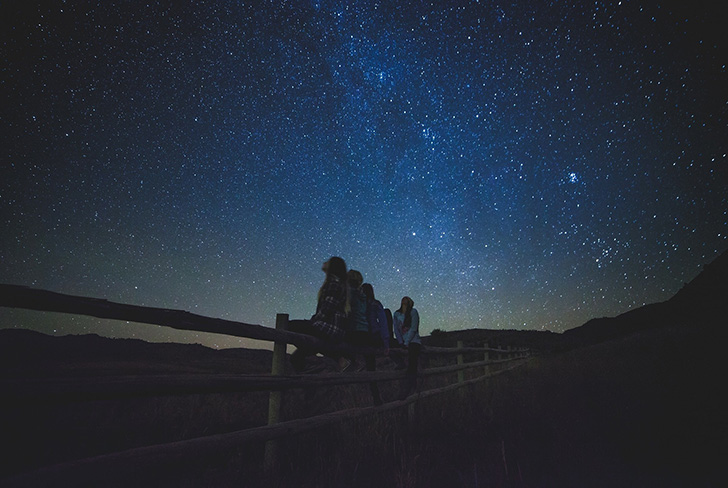
Crispin Truman, chief executive of CPRE, the countryside charity, added: ‘The night sky is one half of our experience of nature; but we don’t often think of it like that. In and of itself, it helps balance our mental health and boost our emotional wellbeing. Recollect that experience of a starry sky and you instinctively know it soothed you.
‘But our view of the night sky – and all the benefits it undoubtedly brings – is being blotted out by light pollution. Like all forms of pollution, it is damaging our mental and physical health, and also having a severe impact on wildlife. Yet, it is a form of pollution that is allowed to increase year on year without any effort being made to control the damage it is causing.’
What you can do
Turning off garden lights when not needed, dimming street lights and reducing office lighting could permanently reduce carbon emissions and cut energy bills while improving the natural environment for wildlife and human health.
Other solutions that could reduce both light pollution and energy use include councils investing in well-designed lighting, used only where and when needed. They can also adopt policies in local plans to reduce light pollution and protect and enhance existing dark skies in their areas.
Want to do your bit to help us work for stunning night skies? We’d love to welcome you aboard as a CPRE member.
From as little as £5 a month you can support our work for dark skies and bag yourself some great perks, such as discounts at outdoor clothing shops and reduced entry to attractions!
Find out why writer Anita Sethi finds the night sky so inspiring.
